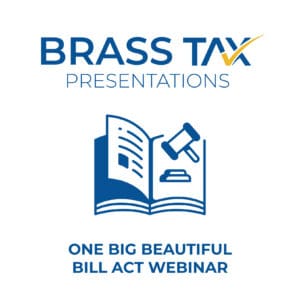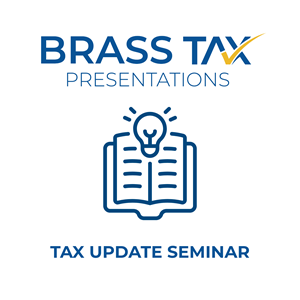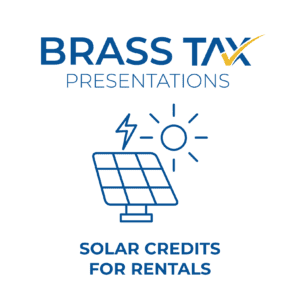Entity Essentials
$419.00
Choosing the right entity classification is one of the most powerful tax strategies we can use—but the rules are complex, and mistakes can be costly. Entity Essentials is designed to give tax professionals a deep understanding of entity classification, tax planning, and return preparation for partnerships and S-corporations.
Whether you’re refining your tax preparation skills or helping clients navigate entity elections, this course will equip you with the knowledge and confidence to handle business entity taxation with ease.
IRS CPE Course Numbers:
UD2VU-T-00166-25-I
Self-study UD2VU-T-00166-25-S
CTEC Course Numbers:
1008-CE-01188
NASBA:
Program ID # 142999 for in-person CPA credits
No Prerequisites
Intermediate Level
Field of Study: Taxes
What is covered
Business Entity Classifications
A business entity’s classification for federal tax purposes is critical to correctly reporting its activities and strategizing to minimize its tax liability. Certain domestic and foreign entities or activities have elections available that give great flexibility to how federal law taxes the entity. This course will review the classification rules, the election options available, and relevant issues for each election, including eligibility, making the election, revoking the election, and late elections.
Learning objectives:
- Identify how and when partnerships can elect out of partnership treatment.
- Explain how a corporation makes a timely or late S election.
- Explain the default treatment and election options for domestic eligible entities, such as a limited liability company, and foreign eligible entities.
Business Entity Tax Planning
Every business should regularly review whether or not its structure for federal tax purposes is optimal. This determination will be especially important in 2025-2026 due to the scheduled expiration of many Tax Cuts and Jobs Act provisions. This session discusses the tax advantages and disadvantages of the sole proprietorship, partnership, S corporation, and C corporation and how to evaluate each type for a business.
Learning Objectives:
- Describe the tax advantages and disadvantages of the sole proprietorship.
- Describe the tax advantages and disadvantages of the partnership.
- Describe the tax advantages and disadvantages of the S corporation.
- Describe the tax advantages and disadvantages of the C corporation.
- Compare the tax outcomes of the different entity choices in a business.
Partnership Tax Return Preparation
Most tax professionals are familiar with filing a Schedule C, but stumble or feel challenged when it comes to preparing a partnership tax return. In this session, you will be guided through the preparation of a partnership return using Form 1065. We will also review tips and tricks to make preparation of these returns efficiently and accurately.
Learning objectives:
- Analyze profit and loss statements and balance sheets to report them on a tax return
- Preparation of Schedule K-1 for partners
- Decipher the questionnaire on Form 1065
- Recognize balance sheet issues on Form 1065 and how to fix them
- Understand the difference between the M-1 and M-2 and how to properly complete those schedules
S-corporation Tax Return Preparation
Outside of sole proprietorships, S-corporations are the most popular entity types for small business taxpayers. This session will guide you through the preparation of S-corporation returns using principals learned in the partnership return preparation course. We will also cover important S-corporation issues such as reasonable compensation and profit distributions.
Learning objectives:
- Identify reasonable compensation for S-corporation shareholders and strategies related to reasonable compensation
- Understand the differences between the preparation S-corporation and partnership tax returns
- Decipher the questionnaire on Form 1120-S
- Understand the difference between Schedule M-1 and M-2
meet your expert instructors



8 CPE Credits
IRS CPE Course Numbers:
UD2VU-T-00166-25-I
Self-study UD2VU-T-00166-25-S
CTEC Course Numbers:
1008-CE-01188
NASBA:
Program ID # 142999 for in-person CPA credits
No Prerequisites
Intermediate Level
Field of Study: Taxes



